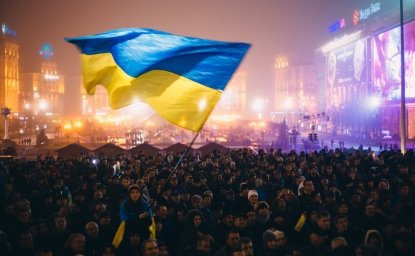Don't Isolate Russia
President Vladimir Putin is facing increasing criticism over Russia's increasingly authoritarian behavior. But former Congressman Lee Hamilton argues that it would be wrong to isolate Russia.
President Vladimir Putin is facing increasing criticism over Russia's increasingly authoritarian behavior. But former Congressman Lee Hamilton argues that it would be wrong to isolate Russia.
This July, Russia will host the summit of the Group of 8 industrial nations (G-8) in St. Petersburg. While the summit marks a step forward for Russia, some critics of President Vladimir Putin have called for a boycott. What is not open to question, however, is Russia's importance to the United States and the world.
For eight consecutive years, the Russian economy has enjoyed robust growth. The last few years in particular have brought new wealth, largely due to the high price of oil and gas. This growth has generated a higher standard of living for many Russians, and helped foster a burgeoning middle class. After the upheaval of the 1990s, Russia has also enjoyed political stability under Putin, who remains a popular President.
Increasingly, this stability has led to more self-confidence on the world stage, including an alliance with the United States in fighting terrorism. 2006 marks the first year that Russia has chaired the G-8, and Putin has chosen to focus the agenda on energy, education, and health care. When the summit of world leaders kicks off on July 15, it will be in St. Petersburg – the historic city that has been refurbished with hundreds of millions of government dollars.
Yet this progress is increasingly eclipsed as Putin rolls back democratic institutions. Russia's legislature is largely under Putin's thumb through the United Russia party, which has a monopoly on political power and is not inclined to allow meaningful opposition. Non-governmental organizations (NGOs) are regulated by the Kremlin, and many have been threatened or closed down. The media – particularly television – is increasingly state-controlled. The judicial system has lost much of its independence. And in an economy characterized by significant government involvement, corruption is rampant.
This assertiveness extends abroad. Russia has tried to exert a measure of control over several former Soviet Republics, and has used its considerable oil and gas reserves as leverage. In January, for instance, Russia cut off a major pipeline into Ukraine for several days while demanding that Ukraine pay higher prices; conversely, the pro-Kremlin President of Belarus, Alyaksandr Lukashenka, enjoyed cheap Russian oil and gas in the run-up to his recent reelection. Putin has also raised eyebrows in Washington by meeting with Hamas, and failing to take a tough stand against Iran's nuclear program (Russia has helped Iran build a nuclear reactor).
These actions have chilled U.S.-Russian relations, which were on such solid footing immediately after 9/11. While President Bush has maintained a close working relationship with President Putin, some in the U.S. worry that Russia's long-term trajectory will move it away from democracy and partnership with the United States. Vice President Dick Cheney recently used strong language to criticize Russia, and Senator John McCain has called for a U.S. boycott of the G-8 summit.
Despite these concerns, isolating Russia would only encourage its troublesome behavior, while the right relationship with Russia will yield advantages in our fight against terrorism, securing nuclear materials, dealing with Iran and North Korea, and spreading trade and investment. Our goal should be to further Russian integration with the West and institutions like the G-8. To that end, we should work with our European allies to deepen cooperation with Russia in areas where we agree, such as counter-terrorism and securing loose nuclear materials, and support membership for Russia in the World Trade Organization. We should also encourage the development of Russia's energy sector, while standing strongly against Russia's use of energy as a tool to exert pressure.
Meanwhile, we should make clear that our long-term relationship depends upon the health of Russian democracy and civil society. We should speak out in support of Russian pro-democracy organizations, a free media, and free and fair elections, and expand exchanges with the younger generation of Russians – the first to come of age after the Cold War. We should point out repeatedly that the incentives for a Russia integrated with the West far outweigh the costs if Russia turns its back on the West.
With Russia, it is useful to take the long-view. For most of my 34 years in Congress, St. Petersburg was called Leningrad, and was largely closed to the West on the other side of the Iron Curtain. While we must stand up and speak out against troubling Russian behavior, we should view it as a measure of progress that we will be doing so in an economically revived city at a G-8 meeting.

